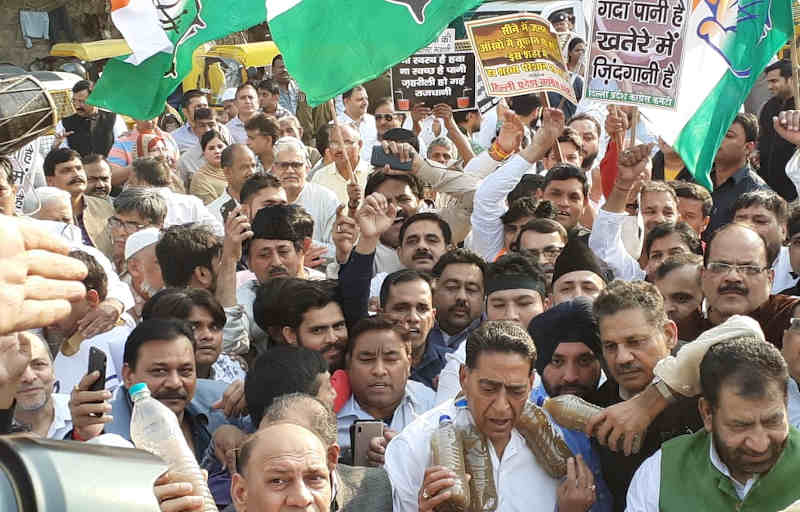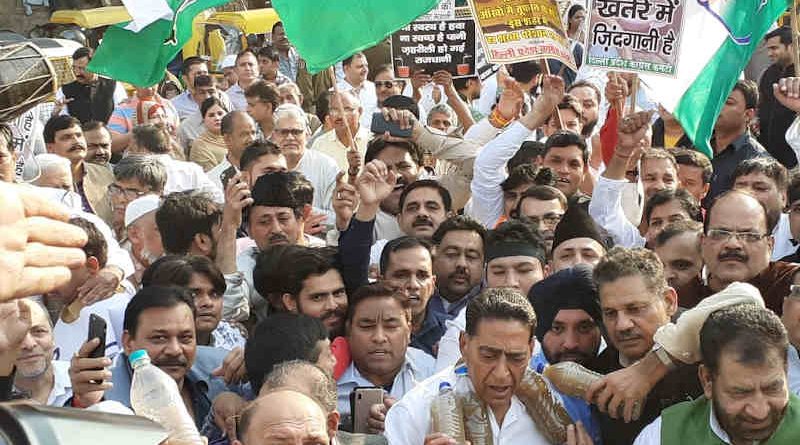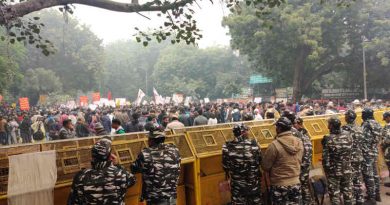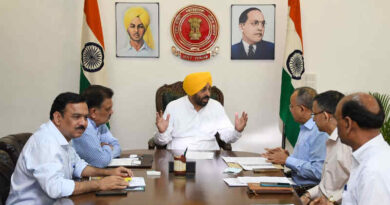Delhi Delivers Poisonous Water to Residents: BIS Report

India’s Department of Consumer Affairs has released the findings of a new study carried out by the Bureau of Indian Standards (BIS) on the quality of piped drinking water being supplied in the country. The study commissioned by the department also ranks the States, Smart Cities, and even Districts based on the quality of tap water.
In the first phase, the samples of drinking water were drawn from various locations across Delhi and in the second phase samples were drawn from 20 State capitals and sent for testing as per Indian Standard 10500:2012 (Specification for Drinking Water) as set by the BIS.
Tests were conducted on various parameters in the first stage. According to the government, majority of the samples have failed to comply with the requirements of IS 10500:2012 in one or more parameters.
In Delhi, all the 11 samples drawn from various places did not comply with the requirements of the Indian Standard and failed on several parameters. Simply put, people of Delhi have been consuming poisonous water.
[ Download and Read: Delhi Disaster Report 2019 ]
While Delhi chief minister Arvind Kejriwal dismissed the BIS report on Sunday saying that the report is “false and politically motivated,” the opposition parties (BJP and Congress) are holding citywide protests to hold Kejriwal accountable for distributing toxic water.
सॉरी दिल्ली…#DilliKaPaaniZehrila pic.twitter.com/9stn519Pl8
— BJP Delhi (@BJP4Delhi) November 18, 2019
Delhi BJP leader Manoj Tiwari said with the Twitter hashtag #DilliKaPaaniZehrila (poisonous water of Delhi) that Kejriwal is spreading disease with poisonous water. Similarly, in its protests, Delhi Congress showed bottles full of poisonous water and asked Kejriwal to resign.
दूषित पानी बंद करो – वरना गद्दी छोड़ दो।
कांग्रेस कार्यकर्ताओं के जस्बे को मेरा सलाम – दूषित पानी के लिए जिम्मेदार केजरीवाल इस्तीफा दे। @INCDelhi के अध्यक्ष श्री @SChopraINC जी की अगुवाई में हज़ारों कांग्रेस कार्यकर्ताओं का तुर्कमान गेट पर ज़ोरदार प्रदर्शन। pic.twitter.com/AptNFp9ddI
— Mukesh Sharma (@MukeshSharmaMLA) November 18, 2019
According to the study, all the 10 samples drawn from Mumbai were found to comply with the requirements. In the cities of Hyderabad, Bhubaneshwar, Ranchi, Raipur, Amravati, and Shimla, one or more samples did not comply with the requirements of the Standard and none of the samples drawn from 13 of the State Capitals, including Chandigarh, Thiruvananthapuram, Patna, Bhopal, Guwahati, Bengaluru, Gandhinagar, Lucknow, Jammu, Jaipur, Dehradun, Chennai, and Kolkata complied with the requirements of the Indian Standard.
Addressing media after releasing the report on Saturday (November 16), the Union Minister of Consumer Affairs, Food and Public Distribution Ram Vilas Paswan said that all should get clean drinking water and that is the objective of this activity.
He added that the objective is not to demotivate anyone; rather it is an exercise to encourage State Governments to provide quality potable tap water to all citizens. Paswan said that in the third phase, samples from Capital cities of North Eastern States and Smart Cities identified by Ministry of Housing and Urban Affairs have been drawn and are being tested.
The result of these are expected by 15th January 2020. While in the fourth phase, it is proposed to test samples drawn from all the district headquarters of the country and their testing is planned to be completed by 15th August 2020.
Paswan also said that the Union Government wants to make BIS Standards mandatory for tap water so as to ensure quality drinking water for all households.




